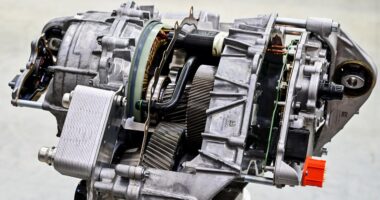
Scientists have spent years coaxing a fussy red seaweed called asparagopsis into cultivation. Their plan: to feed the underwater plant to cows and sheep in an effort to make the animals less environmentally destructive.
The belching and flatulence of livestock release large quantities of methane and make up around 4% of global greenhouse-gas emissions, according to data from the United Nations’ Food and Agriculture Organization. That’s equivalent to the amount contributed by Japan and Germany combined.
Seaweed…
This post first appeared on wsj.com








